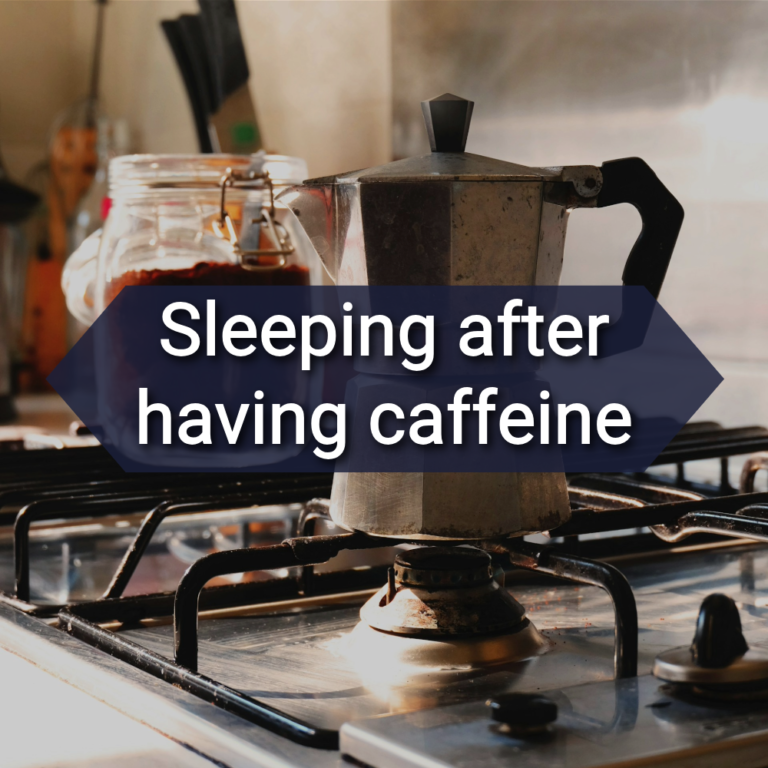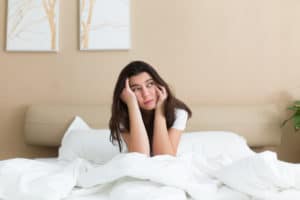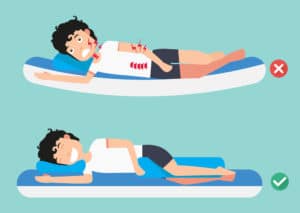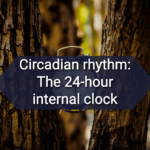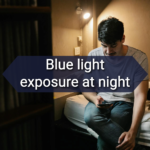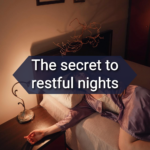We all love our morning cup of joe, but could your afternoon pick-me-up be sabotaging your sleep? Let’s dive into the complex relationship between caffeine and sleep, and discover how to enjoy your favorite brew without sacrificing precious rest.
Key Takeaways
- Caffeine can disrupt sleep by blocking adenosine, a sleep-promoting chemical in the brain.
- Most people should stop consuming caffeine 4-6 hours before bedtime for optimal sleep quality.
- Caffeine sensitivity varies among individuals, so it’s essential to find your personal cut-off time.
- Alternatives like herbal tea or warm milk can provide a soothing pre-bedtime ritual without affecting sleep.
- Monitoring your caffeine intake and sleep quality can help you strike the perfect balance between energy and rest.
What is caffeine?
Caffeine is a natural stimulant found in coffee beans, tea leaves, and cocoa beans. It’s also produced synthetically and added to many beverages and medications. Caffeine works by blocking adenosine receptors in the brain, promoting alertness and wakefulness.
Common sources of caffeine
To better understand your daily caffeine intake, it’s helpful to know how much caffeine is in common beverages and foods. Here’s a quick reference guide:
| Item | Serving Size | Caffeine Content (mg) |
|---|---|---|
| Brewed coffee | 8 oz (240 ml) | 95-200 |
| Espresso | 1 oz (30 ml) | 63-64 |
| Instant coffee | 8 oz (240 ml) | 62-63 |
| Decaf coffee | 8 oz (240 ml) | 2-12 |
| Black tea | 8 oz (240 ml) | 14-70 |
| Green tea | 8 oz (240 ml) | 24-45 |
| Cola | 12 oz (355 ml) | 23-35 |
| Energy drinks | 8 oz (240 ml) | 70-150 |
| Dark chocolate | 1 oz (28 g) | 12-30 |
| Milk chocolate | 1 oz (28 g) | 1-15 |
| Caffeine tablets (e.g., NoDoz, Vivarin) | 1 tablet | 200 |
Keep in mind that these are average values, and actual caffeine content can vary depending on factors like brand, brewing method, and serving size. For the most accurate information, check the product label or manufacturer’s website.
How caffeine impacts your sleep
When you consume caffeine, it quickly enters your bloodstream and reaches peak levels within 30 to 60 minutes. Its effects can last for several hours, potentially interfering with your ability to fall asleep and the quality of your rest.
Caffeine’s primary impact on sleep comes from its interaction with adenosine, a chemical that naturally builds up in your brain throughout the day, making you feel sleepy. By blocking adenosine receptors, caffeine keeps you feeling alert and can make it difficult to drift off when bedtime rolls around.
Pro tip: Keep a sleep diary to track your caffeine intake and sleep quality. This can help you identify patterns and find your ideal cut-off time for caffeine consumption.
The caffeine cut-off: When to stop drinking
For most people, avoiding caffeine for 4-6 hours before bedtime is a good rule of thumb. This timeframe allows your body to metabolize about half of the caffeine you’ve consumed, reducing its impact on your sleep.
However, caffeine sensitivity varies widely among individuals. Factors that can influence your reaction to caffeine include:
- Age
- Body weight
- Genetics
- Tolerance level
- Overall health
Some people may need to stop caffeine intake earlier in the day, while others might be able to enjoy a post-dinner espresso without any sleep disturbances. It’s essential to listen to your body and adjust your habits accordingly.
Other sources of caffeine
While coffee is the most obvious source of caffeine, it’s not the only one. Be aware of these sneaky caffeine sources that might be affecting your sleep:
- Tea (including some herbal varieties)
- Chocolate
- Soft drinks
- Energy drinks
- Some medications and supplements
Always check labels and be mindful of your total daily caffeine intake from all sources.
Caffeine alternatives for a better night’s sleep
If you’re looking to cut back on caffeine, especially in the evening, try these soothing alternatives:
- Herbal teas (chamomile, lavender, or valerian root)
- Warm milk or milk alternatives
- Tart cherry juice
- Decaf coffee or tea (in moderation)
These options can provide a comforting pre-bedtime ritual without the sleep-disrupting effects of caffeine.
Caffeine and sleep hygiene: A holistic approach
While managing your caffeine intake is crucial for good sleep, it’s just one piece of the puzzle. Incorporate these sleep hygiene practices for optimal rest:
- Stick to a consistent sleep schedule
- Create a relaxing bedtime routine
- Make your bedroom dark, quiet, and cool
- Limit screen time before bed
- Exercise regularly (but not too close to bedtime)
- Manage stress through relaxation techniques
By combining smart caffeine habits with good sleep hygiene, you’ll set yourself up for nights of restorative sleep and energized days.
Caffeine and sleep FAQs
How long does caffeine stay in your system?
Caffeine has a half-life of about 5 hours, meaning it takes about 5 hours for your body to eliminate half of the caffeine you’ve consumed. However, it can affect some people for up to 10 hours.
Can I drink decaf coffee before bed?
While decaf coffee contains significantly less caffeine than regular coffee, it’s not entirely caffeine-free. If you’re very sensitive to caffeine, it’s best to avoid decaf in the evening as well.
Does everyone react to caffeine the same way?
No, caffeine sensitivity varies widely among individuals due to factors like genetics, age, and tolerance levels. Some people may be more affected by caffeine than others.
Is it okay to have caffeine if I don’t have trouble sleeping?
If you don’t experience sleep issues and feel well-rested, moderate caffeine consumption may not be a problem for you. However, it’s still a good idea to be mindful of your intake and avoid it close to bedtime.
Can caffeine cause insomnia?
While caffeine itself doesn’t cause chronic insomnia, excessive or ill-timed consumption can contribute to difficulty falling asleep or staying asleep, potentially leading to sleep problems over time.
Conclusion
Understanding the relationship between caffeine and sleep is key to optimizing both your energy levels and your rest. By finding your personal caffeine cut-off time and incorporating good sleep hygiene practices, you can enjoy your favorite caffeinated beverages without sacrificing the quality of your sleep.
Remember, everyone’s caffeine tolerance is different, so pay attention to your body’s signals and adjust your habits accordingly. Here’s to finding the perfect balance between your daily brew and your nightly ZZZs!

